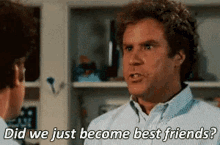In economics, inequality seems to be the topic du jour (it seems appropriate to use French). However, many discussions of inequality are imprecise on exactly why inequality is a problem. Rising inequality is seen as self-evidently bad. Declining inequality is seen as self-evidently good. This implies that society has a greater degree of inequality than the socially optimal level. Yet the socially optimal level is never really defined.
Sometimes discussions of inequality seem like they are actually discussions about poverty. However, poverty and inequality are distinct concepts. For example, one can observe declining poverty, yet rising inequality.
While broader discussions of inequality remain somewhat unclear on the welfare implications of inequality, one segment of the literature in which the “harm” associated with inequality is carefully articulated is with respect to consumption inequality. Here, the problem with inequality is that people care about their consumption relative to others rather than simply their own level of consumption.
There is certainly anecdotal evidence to this effect. Just this week, people were mad on the internet (can you believe it?) that Kim Kardashian flew her family and friends to a private island for her birthday.
Nonetheless, I am not convinced by this argument. In this week’s newsletter, and typical of Economic Forces, I would like to argue that this consumption argument could use a little more price theory.
A basic tenet of economics is that consumers equate the marginal benefit of an action with the marginal cost of that action and that this is true along all relevant margins. If one neglects relevant margins of analysis, it is possible to end up with incorrect conclusions. To illustrate this, let’s consider an example of something many believe to be a social problem: “Keeping up with the Joneses.”
The idea of “keeping up with the Joneses” is that people often make consumption decisions based on the consumption decisions of their friends and neighbors. If your neighbor buys a boat, you decide that you need to also have a boat. Your friend buys a new car, so you buy a new car. Your neighbor puts in a pool. You decide that you also need a pool. You get the idea.

If this was just about explaining the empirical consumption patterns of individuals, that would be one thing. However, “keeping up with the Joneses” is often considered a social ill. This behavior is deemed “bad” because people are stuck buying things that they really don’t want because their friends and neighbors are also buying these things. In other words, people are buying things for something akin to status, not because they actually want to buy them.
This result can be rationalized as follows. Suppose that people get utility from relative consumption, meaning the ratio of the individual’s consumption to that of their friends and neighbors. Apparently, the relevant margin of analysis is relative consumption. People cannot control the spending habits of their friends and neighbors. As a result, they choose the optimal amount of relative consumption. Then, based on the consumption decisions of their friends and neighbors, they choose their own level of consumption.
According to this argument, one’s own consumption is something like a residual. Based on the consumer’s optimal level of relative consumption, the consumer determines what to buy after observing the consumption of friends and neighbors. For example, suppose that the optimal consumption ratio is equal to one. This implies that you want to consume the same basket of goods as your neighbor. When your neighbor buys a pool, you buy a pool and so on.
It’s easy to conclude from this sort of analysis that “keeping up with the Joneses” is a social ill. For many observers, this might seem like a miserable life. Your consumption decisions do not really seem like your own. You are often stuck buying things simply because your friends and neighbors are also buying them. In fact, if your utility is a function of relative consumption, this implies that the marginal utility of your neighbor’s consumption is negative and also reduces the marginal utility of your own consumption. It is also easy to imagine how this sort of argument might lead to “too much” consumption from a societal perspective. If my consumption decisions are based on how much I expect you to consume and your consumption decisions are based on how much you expect me to consume, we both might end up spending more than we would if we made a joint decision. This seems like a bad thing for us as individuals and as a society.
However, there is a basic flaw in this analysis. It ignores a vital margin on which consumers can optimize.
A basic assumption of the analysis to this point is that you cannot control the consumption behavior of your friends and neighbors. That is undoubtedly true if we hold the identities of your friends and neighbors constant. However, you can choose your friends and your neighborhood. So, you do have some control over the consumption decisions of your friends and neighbors through your choice of friends and neighborhood. To quote Chicago Price Theory, “A better way to assess whether one person’s fast car harms or helps his friends is to look at how people choose their friends.”
This distinction is important. What this suggests is that even if an individual’s utility is a function of relative consumption, the relevant margin of analysis is NOT relative consumption. Rather, the individual chooses their own consumption and the consumption of their friends (through their choice of friends) to maximize utility.
Of course, maybe we do not want to think about this in terms of relative consumption. If utility is a function of relative consumption, then the marginal utility of one’s own consumption is decreasing in the consumption of others. This seems to assume too much. For example, casual observation suggests that in certain circumstances peer effects make people better off. In other circumstances, peer effects might make people worse off. Thus, when it comes to peer effects, it might seem more reasonable to think of peer effects as having two distinct effects. The first is that peer effects increase the marginal utility of one’s own consumption. The second is that the direct marginal utility of the peer effects themselves can be either positive or negative. We can then think about complementarities between peer effects and consumption (this is the approach of Gary Becker and Kevin Murphy in their book Social Economics, for example).
To help explain what I mean, let’s consider an example. Casual observation reveals that a subset of consumers choose to join motorcycle clubs or car clubs. This seems consistent with the assumption of complementarities between consumption and peer effects. Consider a car club in which all of the members own a Ford Mustang. It seems safe to assume that for members of this club the marginal utility of consuming the Mustang is increasing in the number of friends/members who also own a Mustang. But is it possible that having more friends who drive Mustangs might increase the marginal utility of owning a Mustang, yet still make the individual worse-off overall? Maybe these poor souls are being suckered and pressured into buying a Mustang.
To determine the direction of the peer effects on utility, we need only look at how people behave. The fact that these car clubs exist suggests that on balance the peer effect increases utility. Why? Mustang owners search out other Mustang owners to form the club or join an existing club. Members of the club actively choose friends who also own Mustangs. It is hard to understand why we observe this behavior if the peer effects are negative.

Nonetheless, this does not mean that the direct effects of one’s peers are always positive. Indeed, it is possible that the direct peer effects are negative — and perhaps even so negative to make people worse off. The “keeping up with the Joneses” problem is this type of argument.
To illustrate this point, let’s consider another example. Suppose that a person gets greater utility from owning a boat if his or her neighbors also own a boat, but the direct effect on utility of having more neighbors who own a boat is negative. How can we determine whether the person is worse off from owning a boat and living in a neighborhood in which a lot of other people also own boats?
The short answer is that we can observe how they behave. If the direct negative effect on utility is sufficiently large in absolute magnitude, one would expect this person to move to a neighborhood in which fewer people own a boat. In fact, if the direct effect of one’s peers differs across individuals, once a neighborhood has a sufficient number of people who own boats, the housing market in that neighborhood might select for current or future boat-owners.
In short, peer effects can be either positive or negative. When peer effects are positive, one would expect people to seek out those who share a common interest because it makes them better off to do so. When peer effects are sufficiently negative, one would expect people to choose different peers. In other words, if “keeping up with the Joneses” is a problem, the Joneses won’t be your friends.
The reason that I think this is important is that these conclusions translate to inequality more generally. The underlying concern about inequality seems to revolve around status. Competition for status seems like a zero sum game (and possibly a negative sum game) since not everyone can have high status. However, as Becker and Murphy point out, if status is a complementary good, then competition for status can produce better social outcomes since invention, innovation, and entrepreneurship not only bring higher income, but also higher status. Furthermore, the concern over inequality seems like it is hard to square with the popularity of the Kardashian family and wealthy celebrities, more generally. If people are made worse off from the higher levels of income and wealth of others, why are the supermarket checkouts filled with celebrity gossip magazines? People might say they do not like keeping up with the Joneses (or the Kardashians), but we should be more interested in what people do than what people say.
For those looking for more content, I’ve spent a lot of time trying to better understand these inequality arguments. For those interested, you can read my review of Piketty here and my review of Saez and Zucman here.



Sorry, I don't buy that. So you're saying that, if I don't like to go to places where people can smoke I can simply don't go to such places? In sum, We don't need to do anything about regulating smoke-free areas?